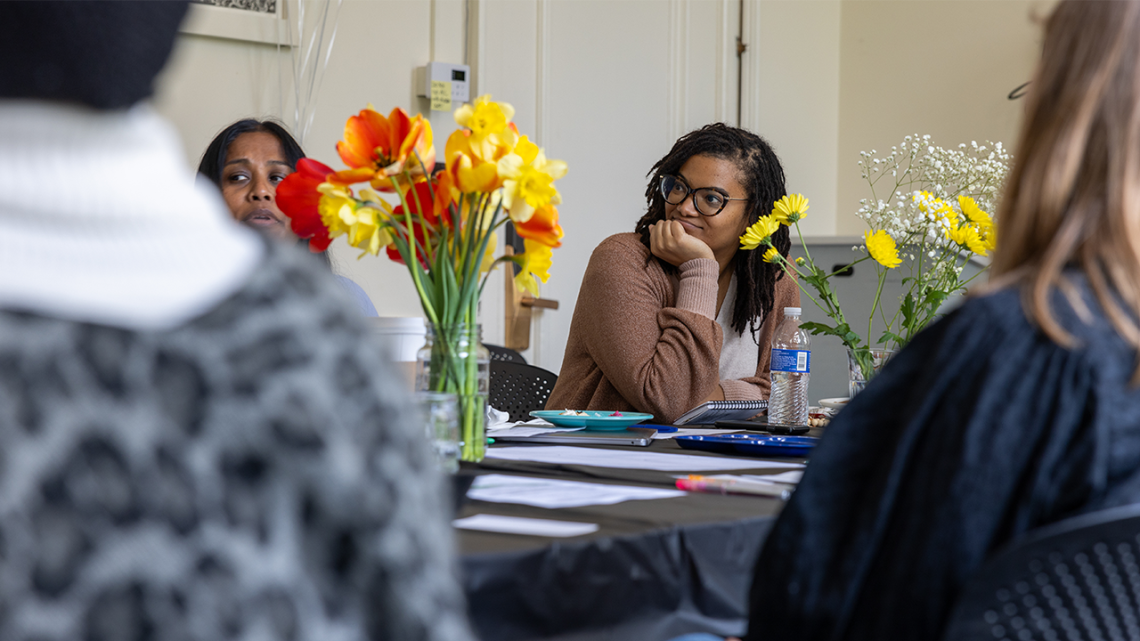
Community engagement is an essential piece of many planning projects, but discussions around change are often emotionally charged and challenged by competing power dynamics. How should planners navigate that space? It's a question CRP's Jocelyn Poe has dedicated her research and teaching to.
News directly from Cornell's colleges and centers
Designed with care: improving community well-being through planning
By Molly Sheridan
Jocelyn Poe, a Provost New Faculty Fellow and Visiting Assistant Professor in the Department of City and Regional Planning, is an educator passionate about employing planning strategies that care for communities. Inspired by her own experiences as a practicing planner, her research and teaching now focus on fostering communal agency during times of change and making sure students are prepared to navigate complex real-world situations.
Question: Jocelyn, you've mentioned working with communities in planning situations early in your career and the impact of the trauma you observed. Could you share a bit about those experiences and how they've shaped your work?
Answer: I was a practicing planner for Duvall Decker Architects, and right out of graduate school I started working on this master plan for West Jackson, Mississippi. We would have public meetings, and I noticed that people would have these visceral reactions to planning, to placemaking, and to talking about West Jackson. And when I say visceral reactions, I mean they were comparing planning processes to violent crimes. I realized that there was something going on that I just wasn't equipped to handle coming out of a planning program where we didn't talk about trauma, we didn't talk about psychology, we didn't talk about sociology, we didn't think about those things.
After that project when I started working at other places in Mississippi, the same thing would come up — these kinds of visceral reactions. I really wanted to make sense of them in ways that I couldn't do in practice because then you're on a timetable and a budget. So I decided to take a step back from practice and get my Ph.D. to study this trauma. My work really is building this theory around communal trauma and how places have hurt and how they express that hurt. It's not just one person experiencing trauma but it's community-wide trauma that's really rooted in a very specific place. This work requires building reparative praxis. If we acknowledge that trauma exists, how can we repair it? My work centers on this question.
Continue reading on the Architecture, Art, and Planning website.
Media Contact
Get Cornell news delivered right to your inbox.
Subscribe
